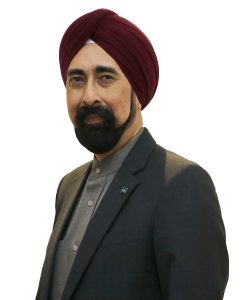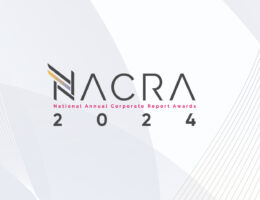As MIA pushes ahead into a new year, President Dr. Veerinderjeet Singh looks back on 2020 and shares his aspirations for the Institute and the profession for 2021 and beyond.
There is no gainsaying that 2020 has been an unprecedented year in terms of turbulence, uncertainty and complexity. For MIA, 2020 entailed managing the Institute’s business continuity and simultaneously driving its nation-building agenda forward in order to support the wellbeing of its members and the profession.
Scenario planning that took into account the possible risks and opportunities as well as dogged tenacity in upholding its purpose was the key to survival. “Throughout the trials and tribulations of this volatile year, MIA was able to steer a steady course and remain resilient, agile and future-oriented through the adoption of suitable workplans. We never lost sight of our ultimate purpose, which is to uphold good governance in the public interest and to future-proof the profession and accountancy professionals to be relevant and valued contributors to nation-building,” said Dr. Veerinderjeet Singh, who was elected MIA President by the MIA Council on 26 September 2020.
Known popularly as Dr. Vee, he brings extensive experience in taxation, business and corporate governance to the post. Dr. Vee is no newcomer to the profession’s issues, as he has served on MIA’s Council and is currently also President of the Malaysian Institute of Certified Public Accountants (MICPA).
What to Expect From MIA for 2021
During his two-year term as MIA President from September 2021 – 2023, Dr. Vee pledged that MIA will continue to prioritise its work as the national accountancy regulator.
“Of utmost importance is our continuing effort to reform the Accountants Act 1967, to strengthen MIA’s effectiveness as the national accountancy regulator and for the profession to stand tall in the eyes of the world,” stressed Dr. Vee. “We will continue to engage closely with the Ministry of Finance and all relevant stakeholders to move soonest possible on the reforms needed to the Act. This will strengthen MIA’s regulatory powers and enhance the effectiveness of our surveillance and enforcement role, to ensure that our members behave ethically in discharging their services to their clients. To deliver effective regulation and governance, MIA cannot remain a “toothless tiger” imposing minor penalties or fines on members who have not discharged their duties ethically in accordance with the professional standards.”

MIA will also continue to emphasise further on competency development and upskilling capabilities in order to build a future-relevant accountancy profession and produce quality professionals who create value while upholding the profession’s ethics, professional standards and practices. “To do this, we will focus on the implementation of the Institute’s Competency Framework and Digital Technology Blueprint to ensure that accountants are upskilled in line with international accountancy education standards and prepared for the IR4.0 economy.”
He stressed that MIA will continue to engage with and provide support to MIA members in all sectors. Professional Accountants in Business, covering commerce and industry can look forward to further upskilling for CFOs and the finance function in accordance with MIA’s Competency Frameworks for CFOs and Finance Functions in Public Interest Entities (PIEs). Professional Accountants in Practice or practitioners will receive further upskilling on the International Standard on Quality Management (ISQM) and audit quality to bridge expectation gaps and protect the public interest. Professional Accountants in the Public Sector will receive upskilling on accrual accounting, International Public Sector Accounting Standards (IPSAS) and other relevant areas such as digital disruption, risk management and internal audit. For Professional Accountants in Academia, MIA will continue to engage closely with the universities as well as the public sector to map a path forward, as well as upskilling on future relevant teaching and accountancy education.
In order to support all its members and deliver on its targeted outcomes, it is imperative that MIA defend the sustainability of the Institute – in its operations, financials, talent and technology deployment. “In addition to core areas such as financial reporting, auditing and taxation, the Institute will continue to enhance our brand recognition and articulate our stance on various advocacy initiatives, including digital transformation, upskilling of our members, sustainable development goals relevant to the profession, governance, trust, risk management, integrated reporting and so forth. This will strengthen the Institute’s visibility as the voice of the profession and communicate the value proposition of the accountancy profession to various stakeholders.”
“I would also remind all stakeholders that MIA has limited resources. Therefore, we must focus and prioritise our initiatives so that Malaysian accountants see value in having a national regulatory body.”
He pointed out that despite the limited resources and the restrictions of the COVID lockdowns and the new normal, MIA successfully deployed technology to support remote working and sustain its productivity during 2020. Despite the challenges, “we were able to launch MIA’s textbook on MFRS application for Islamic finance institutions and MIA’s Illustrative MPERs e-book, roll out the multi-stakeholder eBank Confirmation platform (econfirm.my) and PLC Professional Liquidity Scheme, dedicated COVID-19 webpage with numerous COVID-19 related guidance and articles, enhance surveillance and enforcement activities and hold numerous webinars and online events as part of our continuing professional development service for our members.”
2021 Outlook
As a leading tax practitioner and business advisor, Dr. Vee keeps close tabs on economic and regulatory developments and how these would affect business, government policymaking and the profession’s responses. Asked about his take on 2021, he said that the outlook for 2021 is more bullish than 2020, with a projected upswing in growth for both the local and global economy. Nevertheless, risks remain. “While we are cautiously optimistic, I would like to remind everybody that we are not out of the woods yet. Although vaccines are in the works, the need to manage the pandemic is still essential. Further, economic and social risks are still prevalent.”
“Our advice is for members to remain vigilant, stay safe and function productively by using the tools at our disposal, especially technology supporting remote work. I hope that we can also continue to engage and collaborate positively through physical and virtual platforms to strengthen the profession and to explore how we can support business development and economic development. This is where we can deploy our financial advisory expertise to support nation-building in our own unique way,” enjoined Dr. Vee.
As it is not feasible to zerorise risk, businesses and accountants should work hard to “strengthen their immune systems” by becoming more agile, adaptable and resilient. “Do take advantage of the various stimulus and incentive programmes available to transform and scale up your business and organisations, in order to capitalise on upticks in growth and demand.” Just as businesses were quick to cut costs, they should be equally quick to expand and seize the relevant opportunities.
Tapping into ASEAN and RCEP
Dr. Vee urged accountants to be open and capitalise on regional opportunities in order to future-proof their careers and the profession. “It is vital for members to look beyond Malaysia’s small domestic market by exploring the opportunities emerging from the offshoring of business processes and supply chains and the implementation of trade pacts such as the RCEP,” he said.
A mega free trade agreement (FTA) — the Regional Comprehensive Economic Partnership (RCEP) offers untapped potential through regional linkages and access to regional markets. RCEP comprises the ASEAN 10 + its 5 ASEAN FTA Partners (AFPs) namely Australia, New Zealand, China, South Korea and Japan, whereby the five AFPs are major investors in ASEAN. The major beneficiary of this mega FTA will be ASEAN. As an ASEAN member, RCEP participation will facilitate Malaysia’s access to this mega FTA. Based on World Bank data from 2018, the 15 RCEP Participating Countries account for 29.7% of the global population or 2.2 billion people, a Combined Gross Domestic Product (GDP) of US$24.8 trillion or 28.9% of the world’s GDP and US$10.7 trillion or 27% of global merchandise trade.
ASEAN continues to draw foreign investment. Backed by regional qualifications such as the ASEAN CPA, the ASEAN Mutual Recognition Agreement which enables accountants across ASEAN members states to perform non-regulated accounting services within ASEAN member states, and experience in the Malaysian Financial Reporting Standards that are in full convergence with the international standards, local accountants are well-placed to foray into providing financial services to markets in ASEAN especially in Indonesia and Vietnam with their large population.
MIA is paving the way by collaborating with MATRADE on potential exports of professional services within the ASEAN Economic Community. Thanks to MIA efforts, accounting firms have benefited from MATRADE’s Market Development Grant and Services Export Fund, joint export acceleration mission and joint webinars to support local accountancy firms as exporters of professional services. For 2021, members can also look forward to virtual networking sessions between Malaysian and Vietnamese accounting firms, regulators and professional bodies.
However, Dr. Vee cautioned members that regionalisation and liberalisation can be a double-edged sword. Other than looking towards foreign markets, Malaysian accountants should be working to hone their competitiveness as the competition from regional talent heats up. “MIA emphasises strongly on upskilling and professional development, particularly in digitalisation and compliance with standards, professional practices and ethics, to ensure that Malaysian accountants will be able to hold their own on a level playing field.”
There will also be a concurrent need for employers and member firms to create attractive working conditions, career development pathways and competitive remuneration packages to attract and retain staff who will be naturally drawn by higher wages and currency exchange rates in other ASEAN and RCEP markets. “Any additional brain drain would impact national development plans. But as MIA has been advocating all along, this is a window of opportunity for all of us to address the structural inefficiencies in our economy. One solution is to embrace technology in order to automate routine and mundane processes and create high-value high-paying jobs that are stimulating, rewarding and value our talent appropriately,” he concluded.






